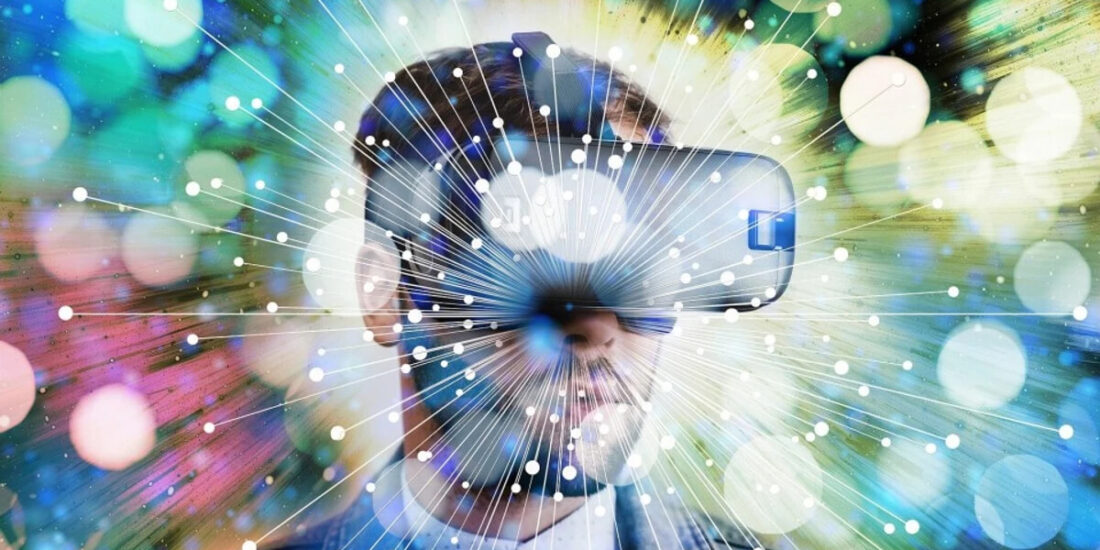The growing trend of Virtual experiences in event management

Do you remember the time when some technological devices such as USB key or tactile mobile phone already appeared like the great new technological revolution? Sometimes, it is funny to look back and consider the idea that at one point, we used to live without high tech items. But we took an unexplored path and we learnt to grow and to adapt our way of living with them. Now, we are always connected with each other: distance has no meaning anymore as we can talk when we want with a person from the opposite side of the Globe.
As we can notice every day, high technology is evolving day by day and makes our daily life constantly easier. For instance, during the Covid19 crisis, high tech items appeared as the perfect solution to keep in touch and to keep working together: applications, videoconferences, social media have all been instrumental in bringing us together. High technology is a fantastic tool that can be used to create solutions and to enhance communication, even if we are home alone.
However, it can also be a powerful tool to entertain people. Indeed, high tech items can take various forms that enable us to have fun and sometimes, to escape from reality. One of these latest little marvels of technology is certainly Virtual Reality Experiences, that are getting more and more important in our daily life as well as in the event management industry.
The major positive impact they can have on events is one of the multiple reasons why event organisers tend to use them more. Indeed, virtual experiences are not only about entertainment, but they can also be an efficient marketing argument and a true added-value to a team-building activity, a conference or an exhibition. However, before exploring the benefits of these virtual experiences in the event industry, let’s focus on the concept of virtual experiences itself.
What are Virtual Experiences?
To better understand this new technological phenomenon, we have had the opportunity to interview Jamie Eussen, the fantastic COO of Enversed, a Dutch company specialised in virtual experiences and in the development of virtual softwares. During our insightful zoom call, she shared her expertise and explained to us what virtual experiences are and their benefits in the event industry.
The best known virtual experience is virtual reality, commonly called VR. To define it, it is a fully immersive experience that stimulates senses: the sight, the hearing, the touch, but also the balance thanks to hardware such as goggles, helmets, head-mounted display or gloves. This hardware has been made to trick the brain and blur the lines between virtual reality and actual reality.
However, Virtual Experiences are not only about a fully immersive universe. Indeed, other experiences called Augmented Reality or AR consist in adding virtual elements to it. This is what some applications such as PokemonGo or Snapchat do for example. In this case, as the concept consists in adding digital elements to the real world, AR lets the user play with reality by giving him the possibility to enhance it.

Another type of virtual experience has recently emerged which is Mixed Reality, a combination of Virtual Reality and Augmented Reality. With MR, physical and digital elements coexist and the user can interact with both of them.
All of these experiences are new game boards where the possibilities seem to be infinite, and which can lead to the following question: is there any limit to virtual experiences? Jamie helped us understand that even if the opportunities seem to be endless, the concept of Virtual Experiences can be more complex than it looks.
The benefit of VR is using real-life elements. We need to stay in this in-between area where elements are based on real motion and real experiences but that don’t look too real.
Jamie Eussen
As Jamie explained, it is important not to create something too far from the users’ reality otherwise they will realise that what they are experiencing is not real. This phenomenon is called “cognitive dissonance”. Thus, in VR, there is a thin line between content that is too cartoonish, too virtual or too real. A good virtual experience is built in this in-between area.
However, as Jamie added, Virtual Experiences do not have to be complex and can take various other forms. Live streaming videos – live direct access videos, or 360-degree videos – immersive videos the viewer can interact with- are also very popular among event organizers as well as among the attendees.
Virtual experiences and event management
VR, AR and MR are getting more and more important in event management. Indeed, the event industry needs to often reinvent itself to offer new experiences to clients and bring more originality to events. Virtual Experiences can bring new perspectives to events and enable the attendees to experience them differently. Virtual Experiences can add a unique touch to events that will last longer in the memory of the attendees. And all these can increase the clients’ brand image.

Moreover, Virtual Experiences allow the attendees to immerse themselves in the event and to be closer to the action in the way they have never experienced before. They can intensify the live event experience for attendees, thanks to its hardware. But that specific hardware is not always mandatory. We can also experience it on our smartphone via applications with live streaming videos or to 360-degree videos. This can be a worthwhile alternative as those solutions are cheaper for event managers and a low-entry point to Virtual Reality.
Virtual Experiences are also good for marketing as they can ensure the message will be perfectly understood by each attendee and they possibly lead to a deeper level of engagement from the audience. Moreover, the live streaming videos enable companies to reach a broader audience in real-time, which means reaching people on an international scale. It can make the event bigger and easier to access.
Virtual Experiences are a growing trend that might be the next step for event planners. No matter which of this virtual experience, this is an option to consider as it could change our way to organize and attend events, by giving the feeling that nothing is impossible. Let’s put technology at the heart of the action to contribute to the success of a memorable event !
Sources:
Event MB Studio Team (2019, July 25) 5 Trends In Virtual Reality For Events. Event Manager Blog, Retrieved April 6th, 2020
https://www.eventmanagerblog.com/virtual-reality-trends-events
Lorne Fade (2018, May 5th) The Definitive Guide to Using Virtual Reality at Events and Conferences. Vr Vision Group, Retrieved April 7th, 2020
https://vrvisiongroup.com/the-definitive-guide-to-using-virtual-reality-at-events-and-conferences/
Michelle Bruno (2016, May 5) Why Virtual Reality May Finally Arrive to Events. Event Manager Blog, Retrieved April 6th, 2020.
https://www.eventmanagerblog.com/virtual-reality-in-events/
Ronnie Higgins ( 2019, January 01) 2019 Event Statistics and What They Mean for Your Events. Event Brite Blog, Retrieved from May 25th, 2020



